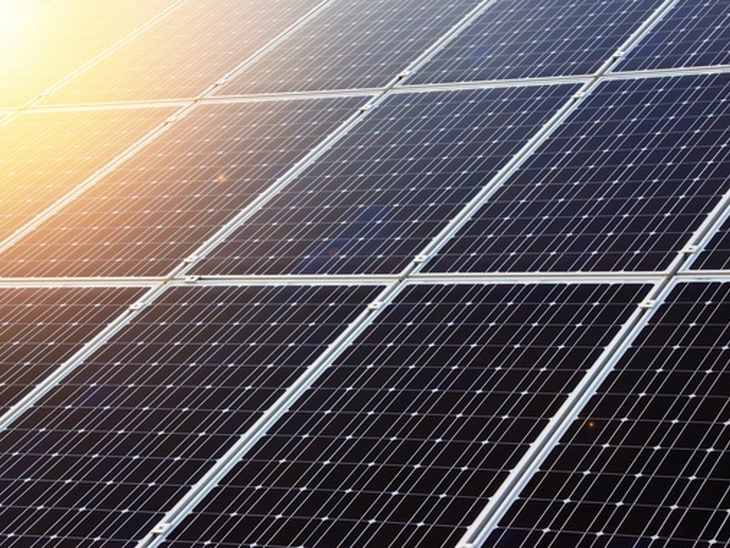
 Solar Energy
Solar Energy
T&B Petroleum/Press Office ABSOLAR

The construction of a legal framework for the generation distributed in Brazil, currently under debate in the National Congress through bills, such as PL 5828/2019, authored by federal deputy Silas Câmara and with current reporting by federal deputy Lafayette de Andrada , is the best way to avoid the risk of regression to solar energy and other renewable sources used for the distributed generation of electricity on roofs, façades and small plots in the country.
The statement is from the executive president of the Brazilian Association of Photovoltaic Solar Energy (ABSOLAR), Rodrigo Sauaia. According to the director, the creation of a legal framework for distributed generation was expected to have occurred in 2020 and needs to be treated as a priority in the current scenario. "This is an urgent demand from Brazilian society, especially in the face of this scenario of double global challenge: socioeconomic, due to the pandemic of COVID-19, and also environmental, due to global warming and climate change", he highlights.
“The legal framework must correctly value the benefits that distributed generation adds to the whole of society, both in the social, economic and environmental spheres and in the electricity sector itself”, he points out. In the substitutive case of PL 5828/2019, recently presented, part of these attributes was contemplated, which contributes to a long-term solution to the topic, for the benefit of society. “However, there is room for improvement, which is why ABSOLAR works on improving the text, through parliamentary amendment,” adds Sauaia.
Despite the progress, the entity warns of the risk of setbacks and legal insecurity in renewable distributed generation in the country. There are recurring threats from large economic groups, such as some energy distributors, who work behind the scenes of the National Congress to curb distributed generation. These interest groups try to contain the advance of the modality to protect the revenues and profits of monopolies that bill Brazilians for the electricity consumed.
“The discourse of these groups is based on a partial and incomplete analysis of distributed generation, which deliberately leaves out of their accounts the benefits brought by the renewable generation itself to consumers and to Brazilian society. When you look at just one side of the coin, you are not being balanced or fair and you still come to the wrong conclusions about the role and contribution of the generation distributed to Brazil ”, he comments.
To mature the debate, ABSOLAR presented an analysis based on the accounting of the various attributes of distributed photovoltaic solar generation. “When we look at both sides of the coin and count the benefits, which are much greater than any costs, the conclusion is exactly the opposite of what these large groups advocate: distributed generation will bring more than R $ 13.3 billion in net benefits for all consumers in the electricity sector by 2035, after discounting all costs ”, explains the entity's executive president.
“As a result, it reduces spending even for those consumers who have not yet invested in technology, in a clear win-win example. Among its benefits are its strong contribution to generating employment and income, attracting investments, increasing public revenue, diversifying the electricity matrix, saving water in hydroelectric dams, reducing the use of expensive and polluting thermoelectric plants, postponing investments in new generation plants, transmission networks and distribution infrastructure, reduction of maintenance costs and electrical losses from transmission and distribution, improving security of supply and the operation of the electrical system for all ”, completes Sauaia.
What does the substitute bill Bill 5829/2019 propose
The substitute presented by deputy Lafayette de Andrada proposes the gradual payment, by consumers with distributed generation, for the use of electrical infrastructure, through the so-called TUSD wire B (Distribution System Use Tariff) of distributors and concessionaires. Additionally, it establishes a ten-year transition to change the regime in relation to the current model, in line with the guidelines of the National Energy Policy Council (CNPE).
The changes would take effect 12 months after the publication of the Law and guarantee the maintenance of the current rules for pioneering consumers, bringing more legal and regulatory security to consumers who generate their own renewable electric energy. For the systems of generation next to the load (for example, on roofs and facades of buildings), of shared generation (plants that produce credits of electric energy to consumers), EMUC (condominiums), self-consumption up to 200 kW and renewable dispatchable sources will have gradual payment schedule for TUSD Fio B, which rises from 0% in 2022 to 100% in 2033.
ABSOLAR, however, identified points of improvement in the text and federal deputy Evandro Roman proposed and presented an amendment that provides a trigger for changing the rule from reaching a 10% share of distributed generation in the electrical supply of each distributor. It also suggests a reduction in half of the remuneration for the use of electrical infrastructure compared to the original text of the substitute, since such consumers use, on average, half of the network compared to a consumer without distributed generation.
“Within the controversy created around this theme, it is worth remembering, however, that recent history shows us that new technologies tend to attract resistance from traditional groups, interested in maintaining the status quo and preserving the economic interests of large corporations and monopolies dominant. We observed this same reaction in other sectors, such as when we had the arrival of cell phones, wifi, new business models for transporting people and goods, new business models for watching series and films over the internet and so on ”, concludes Bárbara Rubim, vice president of distributed generation at ABSOLAR.
Contact us